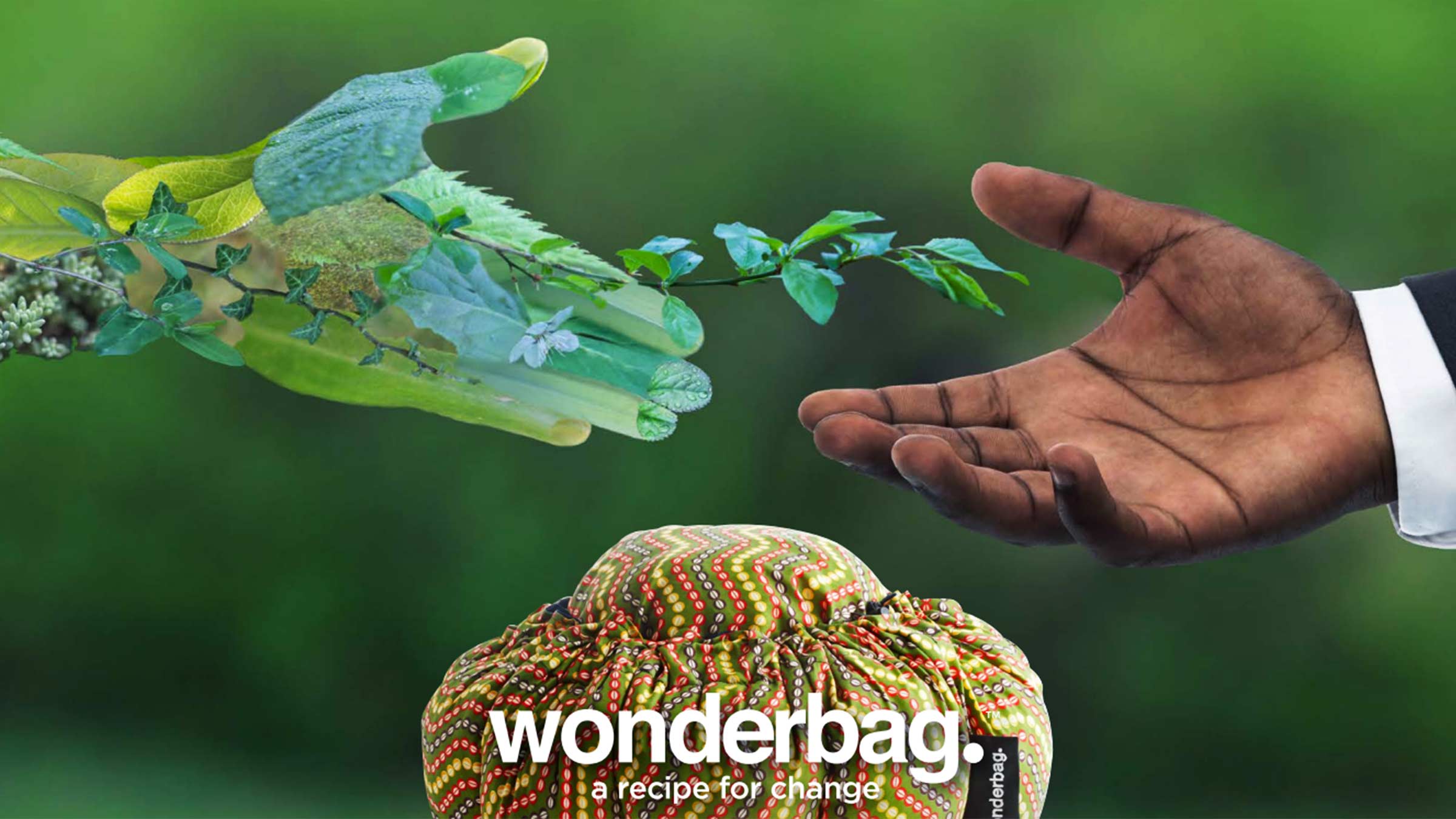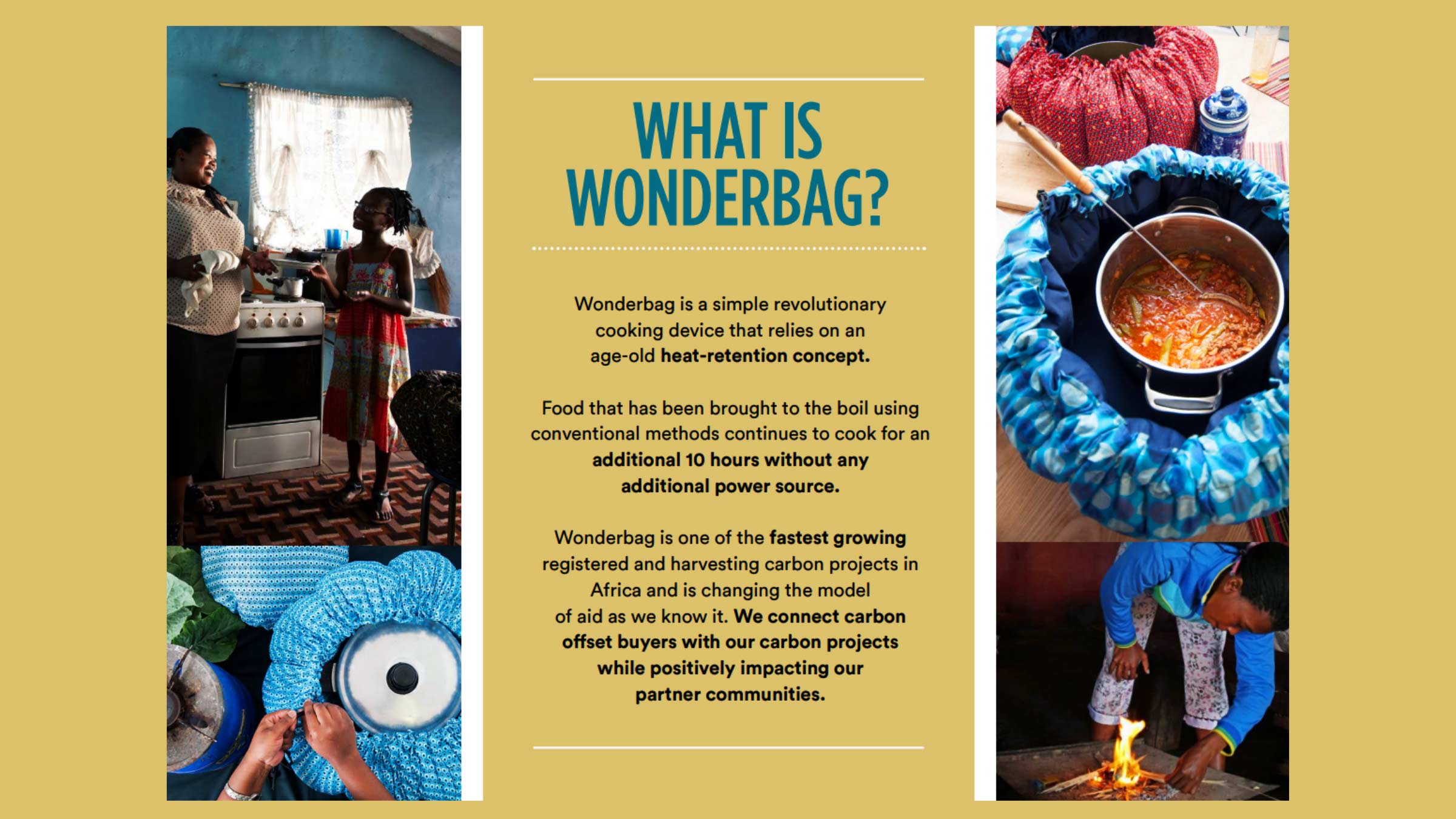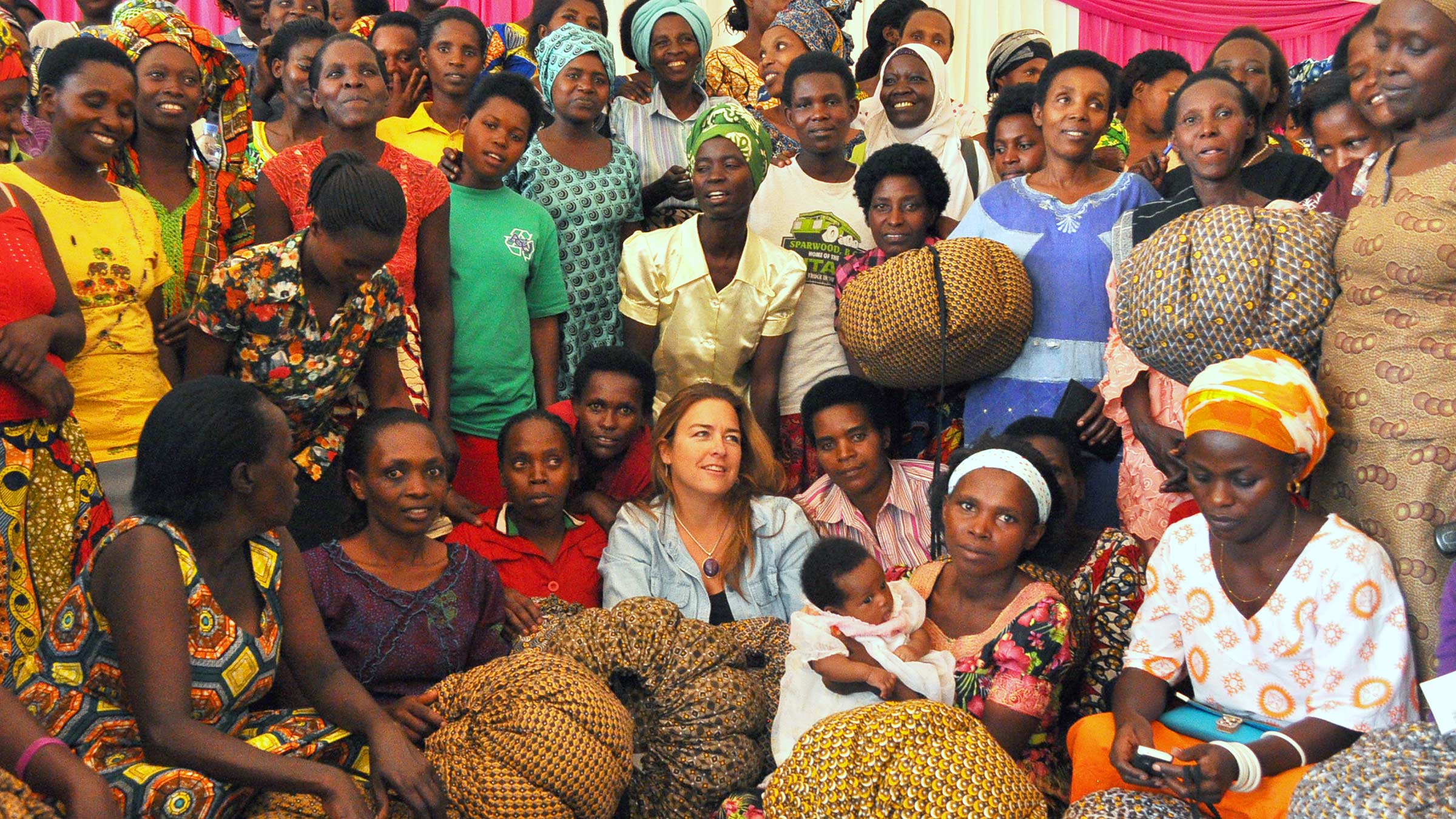It was only two weeks ago, before we knew that the UK was about to go into lockdown, that I was gearing up to interview Sarah Collins, founder of the Wonderbag for our Weekend Edition. Sarah was in England, excited to be making her first trip to Primrose Hill, and I was looking forward to sitting down with her to discuss her phenomenal business. But, as you may have already guessed, it was not meant to be. As the global coronavirus crisis escalated, Sarah jumped on one of the last planes to South Africa and headed home to KwaZulu Natal.
Thanks to the power of modern technology, we were able to Skype instead: her from her beautiful home on a remote beach on the Wild Coast of Natal, South Africa, where I could hear the crashing waves in the background, me from my house in North London. After an hour’s interview I not only felt inspired, but also hopeful for the future of our world.
Sarah grew up on a farm in Natal during the apartheid era, to a very strict, patriarchal family. Raised by a Zulu nanny (the language she spoke as a child and is still fluent in today), Sarah tells me she has always been rebellious. “I wouldn’t accept the status quo and couldn’t stand the striking inequality I saw around me. At 14, I asked my father to send me to an Afrikaans school so I could understand the psyche of the oppressors.”
This experience gave Sarah a real insight into the far-right Nationalist Party. She soon became, she tells me, “a raging political activist”. This is a fitting description: at the young age of just 16 she was arrested for confronting the right wing Prime Minister, PW Botha.

After this incident, Sarah’s family sent her to school in England, and it was here that she discovered her life’s purpose: to fight to make the world, and in particular Africa, a better place.
Making the world a better place is no mean feat, but Sarah has certainly managed it more than most – and in a number of different ways. The first fifteen years of her efforts were dedicated to conservation, working with wildlife organisations in the most remote parts of Africa. Then, just before turning 30, Sarah founded a political party with one of the granddaughters of the founders of the ANC. Running against Jacob Zuma around the time of his trial for allegedly raping a teenage girl, Sarah’s aim was to campaign for human – and in particular, women’s – rights.
For most people, these achievements would be enough for one lifetime… but not for Sarah. She tells me she became disillusioned with politics and turned to business, hoping that, with the right leadership and purpose, it could be the key to changing the world.
She wasn’t wrong. Sarah’s hunch led to the Wonderbag, an innovative cooking tool that is empowering women, creating resilient communities and saving the planet all at once.
Born in 2008, the Wonderbag solves a number of problems. “Most local communities in Africa cook over open fires either outside or in enclosed, tiny living spaces. This is not only time-consuming for the women but also dangerous – it is when they are collecting firewood that there are many incidents of violence and rape. This also leads to deforestation, and cooking inside results in significant fuel consumption and dangerous levels of air pollution,” Sarah explains. Indeed, 600,000 Africans are killed every year by air pollution caused by the use of solid biomass for cooking.
Using heat retention technology, the Wonderbag allows women to cook food without using excess fuel or producing fumes. After bringing food to the boil on a stove for just 20 minutes, putting the pot into a Wonderbag allows it to continue cooking for up to 10 hours – fuel, smoke and hassle-free.
This method of cooking has a positive impact on the planet and its users. Environmentally, using the Wonderbag can save up to 80% of fuel – whether electricity, kerosene, charcoal or firewood – and typically 60% of water per meal.
For its users, the Wonderbag provides a safer way to cook, by drastically improving home air quality and reducing the amount of fire wood women and girls have to collect in often very dangerous conditions. Above all, the Wondebag is a time-saver: allowing women to get back to work, and girls to get back to school.
“I’d always wanted to work with women,” Sarah tells me, “and I spent a long time thinking of ways to empower the matriarch, particularly grandmothers in the villages. Then it hit me: the answer was in cooking!” In founding the Wonderbag, Sarah’s mantra became: it is a human right to cook, to have time to look after one’s family and to have some time for yourself.
“It is a human right to cook, to have time to look after one’s family and to have some time for yourself.”
Sarah is quick to tell me that she did not invent the heat retention technology, giving all the credit to the Wonderbox that came before her. However, 12 years on, and her passion, energy, and perseverance has led to an impressive three million Wonderbags being sold globally. Moreover, there are production facilities all over the world, creating jobs in the communities that need it most.
Sarah’s business model is focused predominantly on carbon credits. By converting the carbon and energy saved from Wonderbags – around one carbon ton per bag per year – into ‘credits’, the company can sell those credits to large organisations looking to offset their own emissions.
Indeed, throughout our conversation, I am struck by the calibre of corporate partnerships that Sarah has secured over the years. For one thing, Microsoft became one of the largest businesses to purchase carbon credits after committing to carbon neutrality in 2014. For another, Wonderbag lists the consumer giant Unilever as a key distribution partner, a directive that came from the top – Paul Polman, then CEO. It is well documented that Paul was one of the world’s first major CEOs who tried to make a difference to how we treated our planet. “After taking us on,” Sarah tells me, “when Unilever and Wonderbag collaborated on a deal to buy a bag and Knorr stock cubes, the bag and cube sales went up dramatically – the highest ever increase of a Unilever operative sale!”
Wonderbag has also worked with the multinational pharmaceutical corporation Pfizer, to promote health care in Ghanaian communities. Together, the two companies held WonderFeasts: events for local communities where attendees could purchase a Wonderbag at a subsidised cost and hear talks about the importance of visiting local clinics and getting children vaccinated. Wonderbags can keep things cold, too, and vaccines have been stored in Wonderbags for up to 12 hours in parts of Africa where there are no fridges.
At times like this – when the whole world feels anxious and uncertain – it is more important than ever to remember how much good there is in the world. My conversation with Sarah served as a timely reminder of this and got me thinking how important it is to try and make a difference. I hope this column has done the same for you – I would love to hear your thoughts.
Quick Facts
Born:I was born on a farm in KwaZulu Natal to a fourth generation South African farming family. Now, I live nomadically but have a base not far from where I was born in a cottage on the beach, known as the Wild Coast.
Who inspires you?: I am inspired by people who see the bigger picture and are authentic. I am definitely inspired by women in Africa. If I had to name one person though, it would have to be Steve Jobs.
Who are your mentors?: I am no longer impressed by people who talk, but by the people who lead differently. Also, frontline workers doing humanitarian work.
Your Legacy: To be remembered as a changemaker who empowers every single young girl, giving them hope to find their North Star and to listen to their call.
Moira.benigson@thembsgroup.co.uk | @MoiraBenigson | @TheMBSGroup










